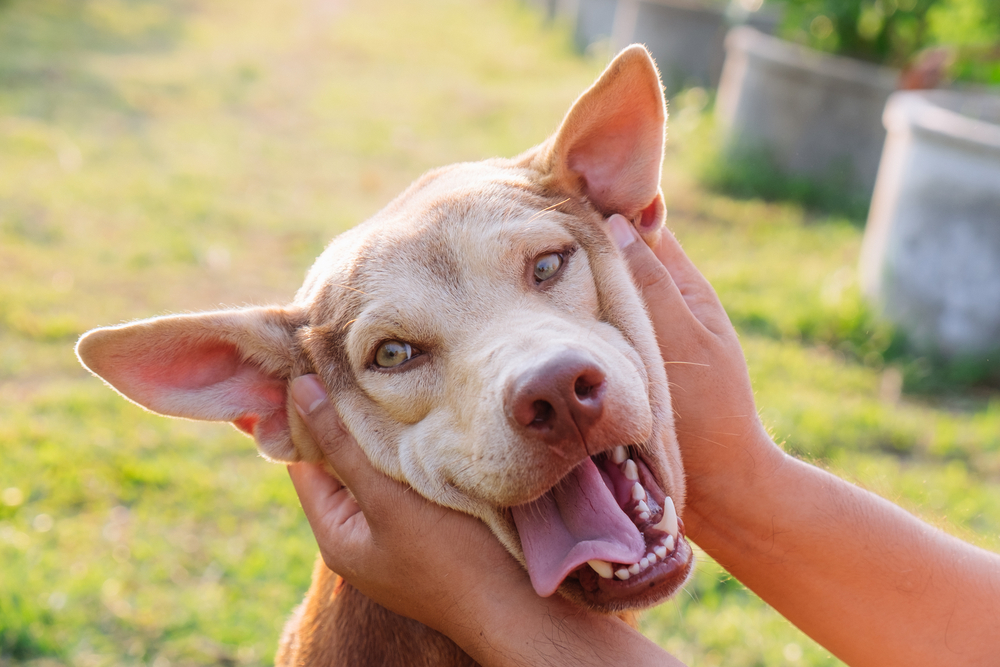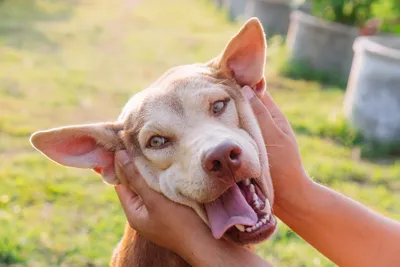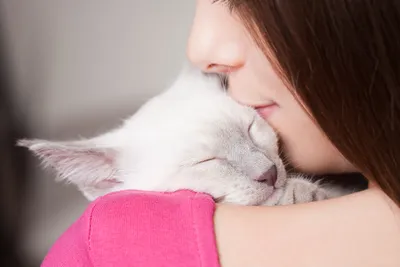I admit, I find it amusing when pets resemble their owners. When a pets hair is as poofy or long and sleek as their owners it makes me giggle. Or when I see a tough looking dude walking down the block with his beefy bulldog, it puts a smile on my face. However, veterinary (and human) professionals agree that the resemblance between pets and their owners can say a lot about the physical health of both species. Here’s how…
1. Dog Breed and Human Personality
A 2012 study conducted by psychologists at Bath Spa University in the U.K., found that the type of dog breed you choose says a lot about your lifestyle and personality. For instance, dog owners who gravitated towards hounds, beagles, and Afghans were the most emotionally stable (similar to the dog breed).
The study further added that owners of utility dog breeds (i.e., Dalmatian, Spaniel, Akita) were the most extroverted; those who chose toy breeds were most imaginative and agreeable; and those who selected famously friendly pups (i.e., Labrador retrievers) from the litter were the most friendly and easy going.
2. When Pet Health Reflects Owner Health
According to Tennessee-based veterinarian, Dr. Kathryn Primm, changes to your fur baby’s health often mirror their owners physical well being.
For instance, Dr. Primm explains, “When a disease process is influenced by lifestyle choices…a pet’s illness can be a reflection of [owner] health, especially when a disease process is heavily influenced by lifestyle choices…and be the extra motivation to help pet and owner make healthy changes.”
3. Pet-Owner Weight
Texas-based veterinarian, Dr. Jim Lowe, DVM, admits that obesity rates in dogs often correlate with the lifestyle habits (i.e., lack of exercise, poor diet) of their owners. For instance, between 2009 and 2015 overweight canines have risen by approximately 10-percent.
Dr. Lowe explains that pet owners who maintain a healthy lifestyle are more likely to have slimmer, healthier pets. Your beloved pooch should enjoy a healthy diet with daily physical activity.
4. Pet-Owner Allergies
Have you ever had a sneezing battle with your dog or cat? If you notice you’re pet is also developing allergies, along with the tell tale symptoms of itchy or runny red eyes; coughing, and sneezing you and Fido or Fluffy may be reacting to the same allergens—namely dust mites, mold, and pollen.
If you suspect both you and your furry friend are allergic to pollen, be sure to pat you pet down with a wet towel whenever they come in from outside. This will help minimize the amount of pollen tracked into your home on your pet’s fur. If you suspect the allergic reactions are to dust mites, washing and vacuuming your carpets, couches, and bedding (and your pet’s bed) can help minimize allergic symptoms.
5. Pet-Owner Phobias
Is your pet terrified of loud noises (i.e., fireworks) or does he or she get freaky during thunderstorms? Your dog or cat’s phobia of fire crackers may reflect your own anxiety towards loud noises, according to Dr. Stanley Coren, PhD, psychology professor, and author of the book, How to Speak Dog: Mastering the Art of Dog-Human Communication.
Dr. Coren explains that an owner’s particular aversions to loud noises, car travel, or weather events can be felt and emoted by their beloved pets. So the next time the weather report calls for thunder and lightening, curl up with Fido and a cozy blanket on the couch and distract yourself with a funny movie or calming music.
6. Pet-Owner Anxiety
There’s a logical reason why many high-strung owners often have high strung, yappy dogs. Or why introverted owners have cats who hide under the bed whenever company comes over. According to a study co-conducted by Brazil’s University of São Paulo and England’s University of Lincoln, pets pick up on their owner’s stress levels.
The study, which combined the expertise of a team of animal behavior experts and psychologists, found that dogs and cats of anxious owners were able to pick up on human vocal and facial cues, and take on the emotional state (i.e., stress levels) of their owners.









